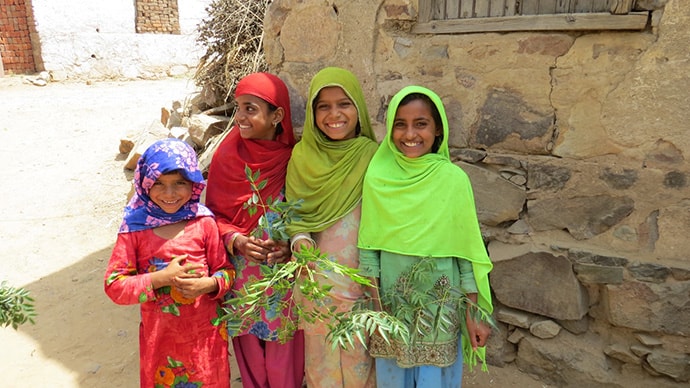Blog
Posted on August 24, 2021
By Laura Baerwolf, Director of Operations, Mona Foundation
The year 2020 will forever be associated with the COVID-19 pandemic. It brought the world to a halt in a matter of months, changed the way we live, work and play, and made clear that what impacts one impacts all. As of this writing, more than 4.4 million people have lost their lives to COVID-19, millions more have been pushed into extreme poverty, and millions of students are without access to continuing education.
“What started as a public health catastrophe became an economic crisis, a food crisis, a housing crisis, and an educational crisis … any of the gains made in the past 25 years across development indicators poverty, health, equality, and education — have been lost.”
— Melinda Gates, Co-chair, Bill and Melinda Gates Foundation
For Mona Foundation, a nonprofit that supports grassroots educational programs in economically disadvantaged communities around the world, 2020 began with great uncertainty and concern for the staff, students, and families of our partner organizations, many of which are based in areas where social distancing is impossible and access to healthcare is non-existent. But as we began to witness their resilience in mobilizing to face a devastating pandemic and their indomitable resolve to contribute to the social good, we were also uplifted, moved, and inspired. Our long-term partnerships, focused on building the capacity of local communities through the twin engines of education and gender equality, had prepared them to create all that was needed to sustain their trajectory towards a better future.
Continue Reading
Posted on August 23, 2021
by Meera Satpathy, Founder & Chairperson of Sukarya
Ranju is a 14-year-old rag picker who supports her family’s income by selling scrap. Her father is an alcoholic. She studied till class IV and dropped out. Her anger issues got her into frequent fights with other children. When Sukarya’s outreach team met her and told her about the Education on Wheels (EOW) project for out-of-school children, her eyes lit up. However, she was not sure if her father would agree to her attending classes. Also, her home environment was hardly conducive to studying. The team spent a few weeks counselling her family members. Today, Ranju is 18 years old and has taken her class X exams and is integrated into mainstream formal education. As part of the EOW and adolescent girls’ program she is now confident of carving out a future for herself. Her mother, who had several miscarriages and was weak and malnourished, attended Sukarya’s health camps where doctors and nutritionists helped her address her medical ailments. She is now working in domestic help and has assured Ranju that she will help her fulfill her dream of becoming a nurse.

Photo credit: Sukarya.
According to India’s National Sample Survey, as of date, more than 32 million children have never been to school. Nearly 80% of migrant children across seven Indian cities lack access to education near worksites even as 40% children from seasonal migrant households are likely to end up as child labor in the unorganized sector instead of being in school, according to the UNESCO’s 2019 Global Monitoring (GEM) report. The report also cites the lack of schooling and a structured environment as a key reason for these children being exposed to exploitation, abuse and trafficking. It is not uncommon to find many children from urban slums getting sucked into a life of crime and delinquency. Also, poverty, unemployment, and large family sizes pushes them towards acute malnutrition, anemia and other deficiencies which impact their adolescent and adult lives.
Continue Reading
Posted on August 19, 2021
By Erin Inclan, Communications Director, Amplio
“Communication is really the first and most important thing to think about when a health crisis emerges.” — Dena Morris, former president and CEO, Washington Global Health Alliance

Photo credit: UNICEF Ghana. Community health nurses played Talking Book message during antenatal clinics.
How do you reach and communicate with people with low- or zero-literacy skills who live in last-mile communities where there’s no infrastructure, electricity, or internet? How do you get your message across if they only speak a local language? This is a challenge under normal circumstances, but what happens in a pandemic?
Since 2007, Amplio has been providing an inclusive digital solution for sharing knowledge with low-literate people in rural, remote communities. Early on, our Talking Book audio device was field-tested in schools in Ghana. More often learning takes place outdoors—ideally, under a tree for shade. Today, our partners use Talking Books to address cross-cutting issues and sectors, including agriculture, health, and gender. With the Talking Book, they can deliver hours of targeted content in a community’s local language, with multiple topics and playlists.
Continue Reading

